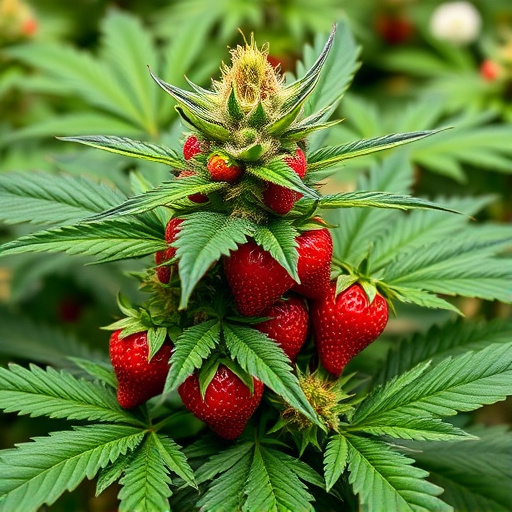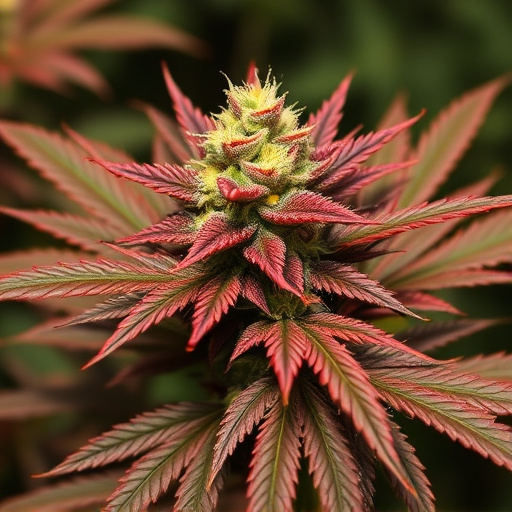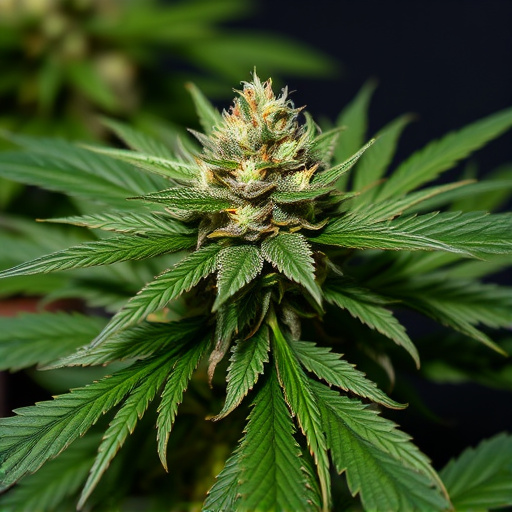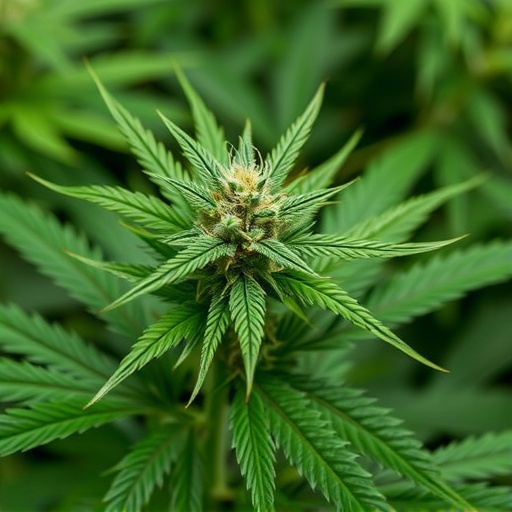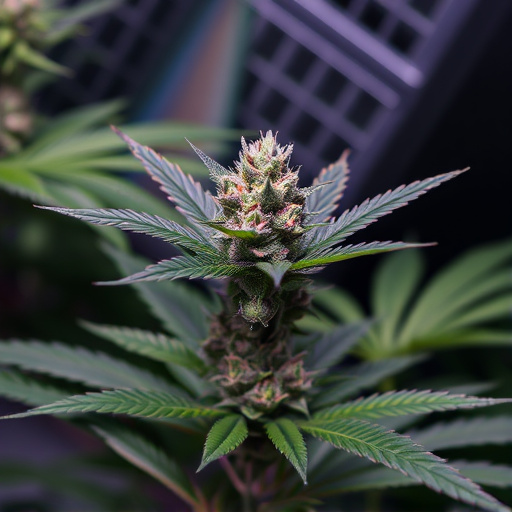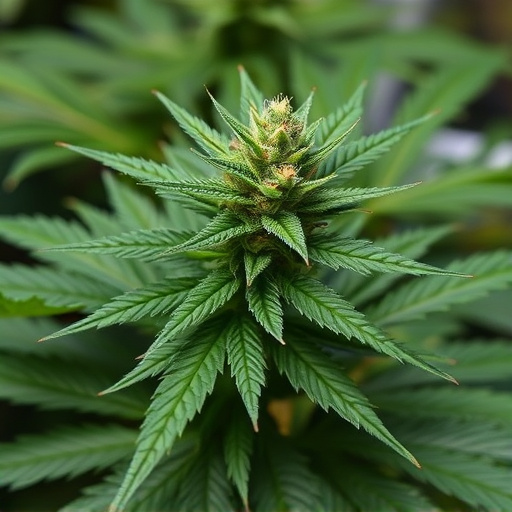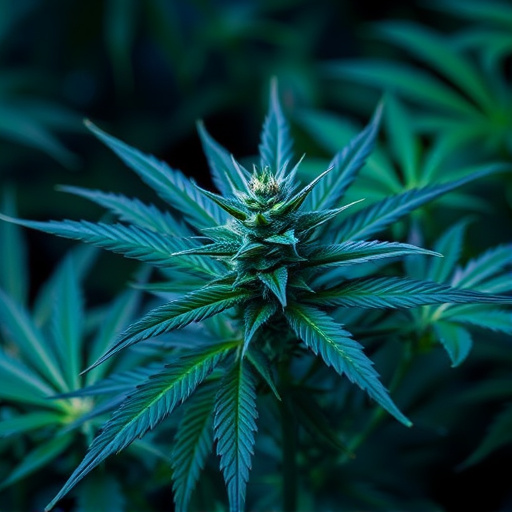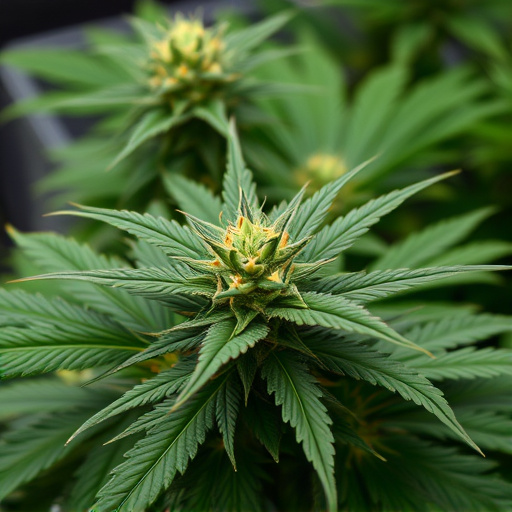The therapeutic potential of cannabis flower from Cannabis sativa lies in its cannabinoids, notably THC and CBD. While THC induces psychoactive relaxation, CBD offers anti-anxiety and anti-inflammatory benefits without intoxicating effects. Personalized medicine approaches using specific medical marijuana strains tailored to individual needs are gaining traction for managing mood and stress disorders. Genetic variations and past experiences influence responses to cannabis, emphasizing the importance of a tailored treatment approach by healthcare providers.
Cannabis flower, with its diverse chemical composition, has gained attention for its potential impact on mood and stress. This article explores how different medical marijuana strains can influence these aspects through a balanced approach. We delve into the science behind cannabis, uncovering specific compounds that contribute to its therapeutic effects. Understanding individual differences is key; personalized treatment with medical marajuana strains offers tailored solutions for managing stress and enhancing well-being.
- Understanding Cannabis Flower and Its Chemical Composition
- The Impact of Medical Marijuana Strains on Mood and Stress Reduction
- Individual Differences and Personalized Treatment with Cannabis
Understanding Cannabis Flower and Its Chemical Composition
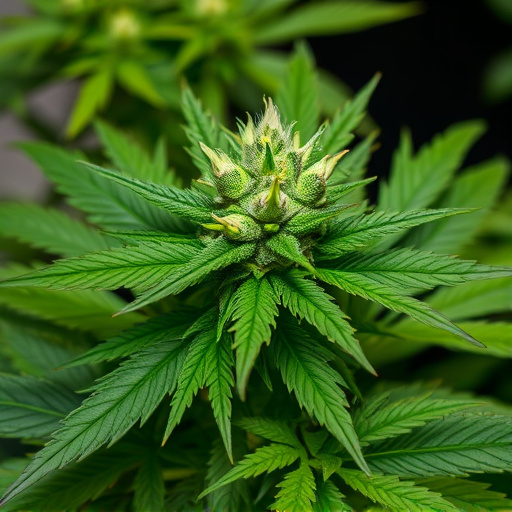
Cannabis flower, derived from the plant Cannabis sativa, has gained significant attention for its potential therapeutic effects, particularly in managing mood and stress-related disorders. At the heart of this plant’s allure are its diverse chemical compounds, primarily cannabinoids. These include tetrahydrocannabinol (THC) and cannabidiol (CBD), each contributing uniquely to the plant’s complex profile. THC is responsible for the psychoactive effects associated with cannabis, inducing feelings of euphoria and relaxation. On the other hand, CBD lacks these intoxicating properties but offers a range of potential medical benefits, including anti-anxiety and anti-inflammatory effects.
Understanding the chemical composition of medical marijuana strains is crucial as it enables users to make informed choices based on their specific needs. Different strains vary in their cannabinoid profiles, with some bred for higher THC content for potent relaxation, while others prioritize CBD for its therapeutic benefits without psychoactive effects. This diversity highlights the importance of personalized approaches to cannabis therapy, where the right strain can significantly impact an individual’s mood and stress levels.
The Impact of Medical Marijuana Strains on Mood and Stress Reduction
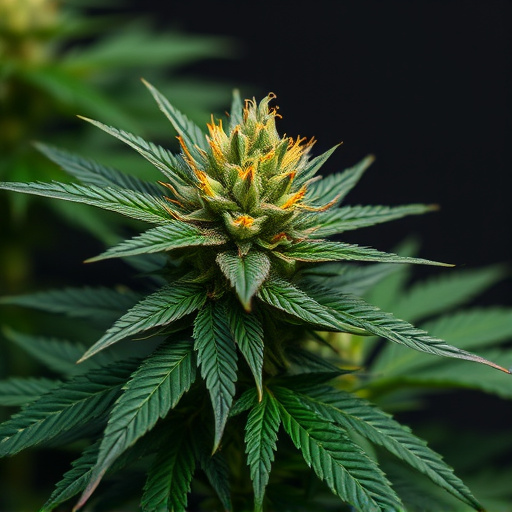
Medical marijuana strains have gained significant attention for their potential to impact mood and reduce stress. These strains often contain high levels of cannabidiol (CBD) and low levels of tetrahydrocannabinol (THC), which are two primary cannabinoids known for their therapeutic effects. CBD is particularly renowned for its calming properties, helping to lower anxiety and promote relaxation without the psychotropic effects associated with THC.
Studies have shown that certain medical marijuana strains can effectively alleviate symptoms of depression and post-traumatic stress disorder (PTSD). The interaction between CBD and the endocannabinoid system in the brain plays a crucial role in regulating mood and reducing stress responses. By binding to receptors in this system, CBD can help restore balance, leading to improved mental well-being and a sense of tranquility. Moreover, the aroma and sensory experience of different strains also contribute to their stress-relieving effects, creating a multi-dimensional approach to wellness.
Individual Differences and Personalized Treatment with Cannabis
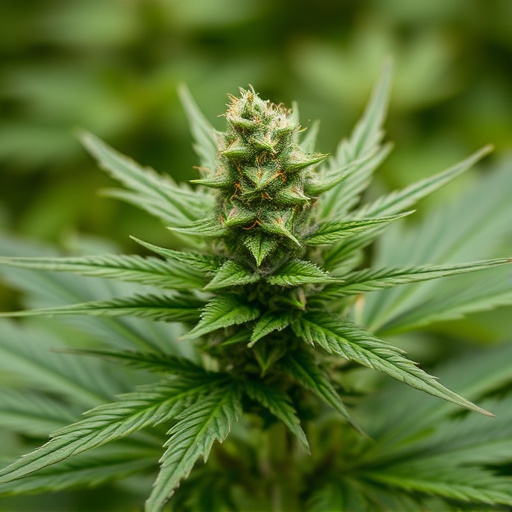
When exploring how cannabis flower affects mood and stress, it’s crucial to recognize that individual differences play a significant role in its impact. Everyone processes cannabinoids differently due to genetic predispositions, overall health, and previous experiences with cannabis or other substances. For instance, some individuals may find that specific medical marijuana strains elevate their mood and reduce stress effectively, while others might experience the opposite effects. This variability underscores the importance of personalized treatment approaches using cannabis.
Healthcare providers are increasingly incorporating cannabis into treatment plans, tailoring recommendations to patients’ unique needs and responses. By considering factors like strain profiles (e.g., high THC vs. CBD content), consumption methods (vaping, edibles, tinctures), and dosing, healthcare professionals can help patients find the optimal balance for managing mood and stress. This personalized approach ensures that medical marijuana is used therapeutically and safely.
Cannabis flower, with its diverse chemical composition, offers a unique approach to managing mood and stress. The article has explored how specific medical marijuana strains can positively impact these areas, highlighting the potential for personalized treatment based on individual differences. By understanding the effects of cannabis, individuals can make informed decisions about incorporating medical marajuana strains into their wellness routines, paving the way for further exploration and acceptance in the healthcare realm.

